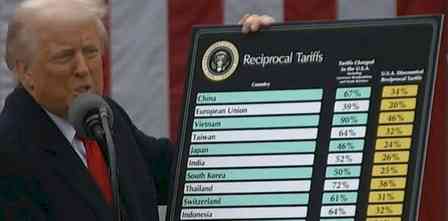Pak varsities asked to promote local drinks in light of financial crisis
In a bid to tackle the ongoing economic crisis facing the country, the Higher Education Commission (HEC) of Pakistan has suggested the vice-chancellors (VCs) of the public sector universities promote the consumption of local drinks such as lassi and sattu, as this will "increase employment and generate income for the public", media reports said.

Karachi, June 25 (IANS) In a bid to tackle the ongoing economic crisis facing the country, the Higher Education Commission (HEC) of Pakistan has suggested the vice-chancellors (VCs) of the public sector universities promote the consumption of local drinks such as lassi and sattu, as this will "increase employment and generate income for the public", media reports said.
In a circular, HEC acting chairperson Shaista Sohail drew the VCs' attention to the financial crisis confronting Pakistan and asked them to take a "leadership role and think of innovative ways to provide relief to the lower-income groups and the economy as a whole", Geo News reported.
The suggestions include promotion of local tea plantations and also traditional drinks which are locally manufactured and healthy, like lassi and sattu. This will increase employment and also generate income involved in manufacturing these drinks for the public. The expenditure on the import of tea would also reduce, Geo News reported.
"I am sure that the honourable vice-chancellors will be able to innovatively explore many other avenues to create employment, reduce imports and ease the economic situation," Sohail added.
The chairperson's suggested measures include reducing fossil fuel imports; promoting research in alternate energy as a substitute for imported fossil fuel in motorcycles, buses, trains, cars etc.; reducing edible oil imports; and research on local cooking oils and their marketing to replace imported edible oils.
Pakistan has been grappling with widening current account deficit, depleting foreign exchange reserves, and a delay in the revival of the International Monetary Fund's (IMF) loan agreement.


 IANS
IANS 








